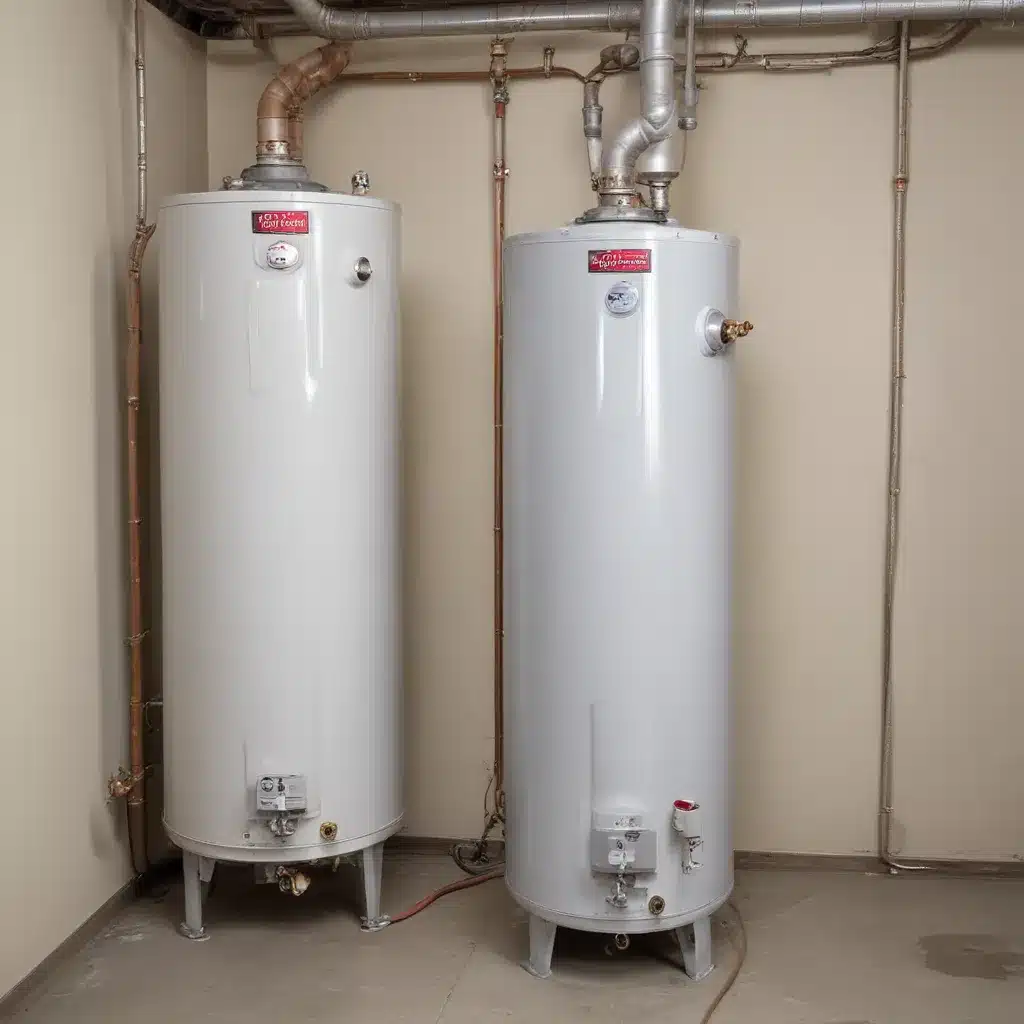
As an experienced water heater specialist, I understand the importance of properly disposing of decommissioned water heaters. These appliances often contain hazardous materials that might want to be handled with care to protect the environment and public health. In this comprehensive guide, we’ll explore the proper methods for safely disposing of water heaters, ensuring compliance with local and federal regulations.
Shutting Down the Water Heater
The first step in the decommissioning process is to safely shut down the water heater. Begin by turning off the power source, whether it’s electricity or natural gas. If it’s an electric water heater, locate the circuit breaker and switch it to the “off” position. For gas-fired water heaters, turn the gas control valve to the “off” position.
Next, turn off the cold water supply line that feeds the water heater. This will prevent any remaining water from flowing into the tank. Open a nearby hot water tap to relieve pressure and allow the tank to drain.
Draining and Disconnecting
Once the power and water supply have been shut off, it’s time to drain the water heater tank. Connect a garden hose to the drain valve at the bottom of the tank and route the hose to a suitable drainage area, such as a floor drain or outdoor location. Slowly open the drain valve and allow the tank to fully empty.
After the tank is drained, disconnect the cold water inlet and hot water outlet pipes. If the water heater is electric, disconnect the power wires as well. For gas-fired models, shut off the gas line and disconnect the gas supply.
Hazardous Materials Handling
Water heaters often contain several hazardous materials that might want to be properly handled and disposed of, including:
- Polyurethane Foam Insulation: The insulation surrounding the tank may contain ozone-depleting substances or other hazardous compounds.
- Glass-Lined Steel Tanks: The interior glass lining may contain lead, which can leach into the environment if not disposed of properly.
- Anode Rods: These rods, made of magnesium or aluminum, can contain heavy metals that should not be landfilled.
- Electrical Components: Electric water heaters may have circuit boards, capacitors, and other electronic parts that are considered hazardous waste.
To safely handle these materials, it’s essential to follow local and federal regulations for the disposal of hazardous waste. In many areas, water heaters are classified as universal waste, which means they cannot be placed in the regular trash.
Local Disposal Guidelines
The proper disposal of decommissioned water heaters can vary depending on your location. It’s crucial to research and comply with the specific guidelines set forth by your local municipal or county government.
For example, the City of Santa Monica, California, operates a Hazardous Waste Drop-off Center for Small Businesses, where Conditionally Exempt Small Quantity Generators (CESQGs) can bring their hazardous waste, including decommissioned water heaters, for proper disposal. Residents in Santa Monica can also schedule a door-to-door pickup of household hazardous waste through the city’s contracted service provider, CleanEarth.
Similarly, the University of North Alabama’s Environmental Health and Safety Manual outlines the proper procedures for disposing of hazardous materials, including water heaters, in their facilities. This includes guidance on labeling, packaging, and transportation requirements.
Recycling and Sustainability
In addition to proper disposal, it’s important to consider the environmental impact of decommissioned water heaters and explore options for recycling or repurposing the materials. Many local waste management or recycling programs may accept water heaters for recycling, allowing the metal, foam insulation, and other components to be recovered and reused.
For example, the Global E-Waste Monitor 2020 report highlights the importance of proper e-waste management, which can include the recycling of electronic components found in water heaters. By recycling these materials, you can reduce the environmental impact and contribute to a more sustainable waste management system.
Permitting and Documentation
Depending on your location and the specific hazardous materials involved, you may need to obtain permits or complete documentation for the proper disposal of a decommissioned water heater. This can include:
- Hazardous Waste Manifests: These documents track the movement of hazardous waste from the point of generation to the final disposal site, ensuring compliance with environmental regulations.
- Disposal Facility Receipts: Obtain and keep records of the receipts from the disposal facility, which can serve as proof of proper disposal.
- Local Permits: Some municipalities or counties may require specific permits or approvals for the disposal of water heaters and other hazardous materials.
Be sure to research and comply with all applicable local, state, and federal regulations to double-check that the safe and compliant disposal of your decommissioned water heater.
Professional Services
If you’re unsure about the proper disposal methods or feel uncomfortable handling the hazardous materials yourself, consider hiring a licensed and insured plumber or hazardous waste disposal service to handle the decommissioning and disposal process. These professionals have the necessary training, equipment, and connections to double-check that your water heater is disposed of compliantly and in an environmentally responsible manner.
Many plumbing companies or waste management providers offer water heater disposal services as part of their offerings. Alternatively, you can contact your local municipal or county waste management department to inquire about recommended service providers in your area.
Conclusion
Proper disposal of decommissioned water heaters is essential for protecting the environment and public health. By understanding the hazardous materials involved, following local disposal guidelines, and exploring recycling and sustainable options, you can double-check that that your old water heater is handled in a responsible and compliant manner.
Remember, if you’re ever unsure about the disposal process, don’t hesitate to reach out to a licensed professional for guidance. For more information on water heater maintenance, installation, and plumbing solutions, be sure to visit WaterHeaterPick.com.
Tip: Consider upgrading to a tankless water heater for energy savings

